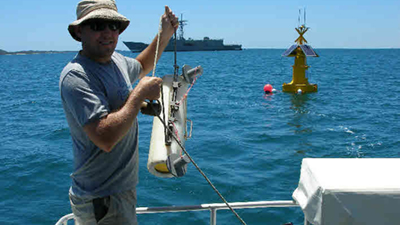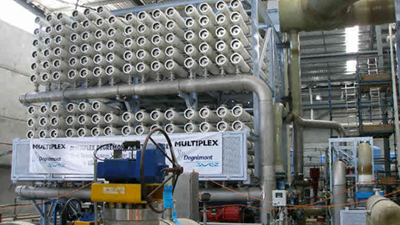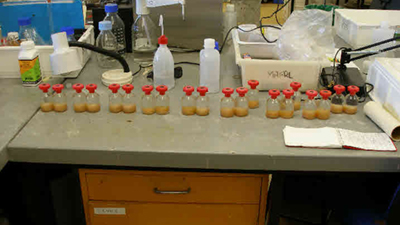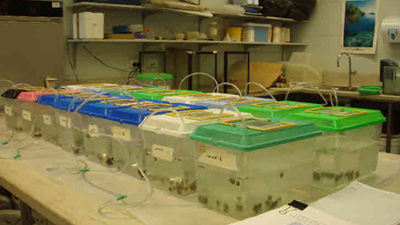Discharge impact assessment
Our Services
Hydrobiology provides services in discharge impact assessment for desalination projects. These services range from testing of the toxicity of the proposed/actual discharge to local and standardised aquatic species to receiving environment baseline surveys. These services are typically provided for project approvals purposes, though are also utilised in operational monitoring, process investigations and due diligence.
Skills and Techniques
In Australia, seawater desalination has been identified as a way to reduce dependence on water impoundments as the sole source of community drinking water, and effectively make the potable water supply drought-proof. Prior to construction and operation of Australian desalination plants, investigations are required to determine the toxicity of a range of possible discharges. This includes lab derived and pilot-plant brines which encompass a number of different mixtures of brines and desalination process chemicals, as well more focused assessments of individual process chemicals. Hydrobiology has been involved in these investigations in various roles, including:
- Inception and design of testing regimes;
- Interpretation of toxicity data and delivery of outcomes to stakeholders;
- Calculation of trigger value and safe dilutions of the various effluent components.
Through these different levels of involvement, Hydrobiology have been at the forefront of the environmental impact assessment of desalination plant effluent and process chemicals and now have vast experience in the design and implementation of toxicity testing programs and delivering outcomes in an efficient, timely and cost effective manner.
Our key skills and techniques include:
Brines and process chemicals – The following items are taken into consideration during the design and implementation of the program:
- Use of as many locally relevant species in the toxicity testing as possible;
- Use of as many accredited toxicity tests in the assessment suite as possible;
- Implementation of non-standard testing if deemed appropriate;
Ecotoxicity data analysis, including:
- Use of ANZECC/ARMCANZ (2000) methods to derive trigger values and safe dilutions;
- Use of best available data from the suite of toxicity tests (i.e. IC10/NOEC);
- Derivation of acute to chronic ratios to convert acute test results to chronic values for use in calculating “High Reliability” trigger values;
- Expressing results in easy to understand terms;
- Delivery of technical and summary reports and presentations to stakeholders.





